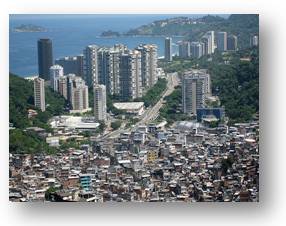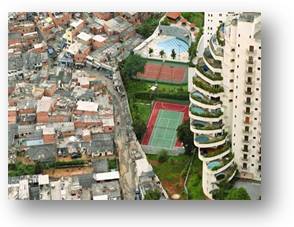Economic growth

Economic growth
Economic growth is an increase in the productive capacity of an economy measured in terms of the growth in real national income per capita (per head) between one year and another.
Economic growth is normally good news for business. We normally measure it via the real GDP figure - i.e. the Gross Domestic Product adjusted for inflation.
Gross Domestic Product is a measure of the total amount of goods and services produced in an economy over a period produced by the residents of a country. Income from abroad is, therefore, excluded.
Comparisons of country GDP can be found on the CIA World Factbook or viewed in the window below:
The determinants of economic growth in an economy include:
- Access to factors of production and their productive use.
- Application of technology and the rate of technological progress.
- Development of a competitive advantage.
- Creation of a highly skilled workforce.
- Increasing investment levels (the purchase of capital).
- Positive government policies that support business and aid growth.
 Businesses usually experience benefits from economic growth because:
Businesses usually experience benefits from economic growth because:
- It delivers new opportunities.
- There is greater certainty in markets.
- Incomes are increasing (businesses with income elastic products will benefit the most in this situation)
- Demand is increasing
- The size of all markets is increasing
However, there are potential negative consequences of economic growth. These may include:
- Externalities - social costs
- Damage to the environment
- Depletion of resources
- Rising prices (inflation)
- Increasing size and monopoly power of firms creating unfair competition
- Increasing inequalities between rich and poor
Growth is essential to provide higher revenues and profits and to improve the standard of living of the population in general. However, a trade-off has to be accepted and growth at all costs may have serious consequences. A mad rush to high and constant levels of economic growth might result in the exhaustion of resources, environmental damage and most certainly the failure to deliver sustainable growth. It can also lead to risk-taking and deregulation in the pursuit of further growth, which can be disastrous as shown by the recession of 2007 - 2010 considered by many economists to be the worst financial crisis since the Great Depression of the 1930s. This recession has had a dramatic, but disproportionate effect on growth rates around the globe. Those countries exposed to the 'credit crunch', such as Europe and the USA have seen sharp declines in economic growth. Other areas, particularly in Asia have continued to grow strongly.
The BRIC countries
The 'BRIC countries' - Brazil, Russia, India and China - are both the fastest growing and largest emerging market economies. They account for almost three billion people, or just under half of the total population of the world. In recent times, the BRIC have also contributed to the majority of world GDP growth.
According to various projections, it is only a matter of time before China becomes the biggest economy in the world probably between 2030 and 2050. Goldman Sachs believes that by 2050 the BRIC countries will be the most important economies, relegating the US to fifth place. GM recently estimated that BRIC countries will account for more than 35% of the total auto market globally by 2014.
Apart from their growth characteristic the BRIC countries have little in common, but political and economic alliances are beginning to develop and in 2010, the leaders of these countries met in Brazil's capital Brasilia for the second BRIC summit.

The Two Faces of Brazil
 Despite the world recession, Brazil has managed economic growth of almost 5% and is set to overtake both the UK and France to become the world's 5th largest economy up from 10th place in 2006. It was one of the first emerging markets to begin a recovery after the global recession.
Despite the world recession, Brazil has managed economic growth of almost 5% and is set to overtake both the UK and France to become the world's 5th largest economy up from 10th place in 2006. It was one of the first emerging markets to begin a recovery after the global recession.
Brazil will host the 2014 World Cup and the Olympic games in 2016 raising its profile even further as a global power. Brazil's economy outweighs that of all other South American countries and has an expanding presence in world markets. It has the third largest aircraft manufacturing industry in the world and is tackling climate change, with 50% of its cars running on bio-fuels. It is trying to foster an image as the new 'breadbasket of the world'. It exports more meat than any other country and is aiming to be a significant energy producer. With falling unemployment, a buoyant economy, growing confidence, a hugely popular president, fantastic beaches and 6 millionaires created every hour, Brazil looks a perfect place to live.
However, that is just one side of the story; there is a darker side. Brazil is a country with deep inequality - approximately 60 million people are classified as living below the poverty line.
 The most visual representation of poverty in Brazil is the slums, or favelas. Over five hundred favelas can be found within the Rio area housing approximately 2 million people. Here unemployment is high and drug wars common. The favelas sit side by side with trendy opulent areas, magnifying the social divide. According to UNICEF about 42 percent of Brazilian children live in poverty. Approximately one eighth of all Brazilian children live on the streets. There is little sanitation, poor electricity and minimal chance of escape. There are calls for tax, social security, political and labour reforms to address the cycle of poverty.
The most visual representation of poverty in Brazil is the slums, or favelas. Over five hundred favelas can be found within the Rio area housing approximately 2 million people. Here unemployment is high and drug wars common. The favelas sit side by side with trendy opulent areas, magnifying the social divide. According to UNICEF about 42 percent of Brazilian children live in poverty. Approximately one eighth of all Brazilian children live on the streets. There is little sanitation, poor electricity and minimal chance of escape. There are calls for tax, social security, political and labour reforms to address the cycle of poverty.
Comparing Brazil to similar countries in economic terms is instructive. Brazil and Hungary have comparable per capita income, but the incidence of poverty in Brazil is much higher. In Hungary the richest 20% of the population receives about four times more income than the poorest 20%, whereas in Brazil the richest 20% receives 30 times more than the poorest 20%.
This cycle of poverty and the equality gap needs addressing before the Brazilian economy can really be considered a global power
Adapted from: BBC News sources below:

- Will Brazil's economy keep growing?BBC News, (27/5/10)
- Brazil's bid to be 'world's breadbasket'BBC World News America, (26/5/10)
- Tackling Brazil's povertyBBC World News America, (28/5/10)
- Brazil's development spurs economic quality hopesBBC World News America, (27/5/10)
- Brazil's air industry takes offBBC World News America, (24/5/10)
- 'Our growth quality is better than China'BBC World News America, (25/5/10)
- Brazilian economy poised to overtake UK'sBBC News Today, (27/5/10)
Additional Data on Brazil can be found from the following sources:
- Brazil EconomyEconomyWatch
- BrazilCIA World Factbook
- Brazil dataWorld Bank
- Embassy of Brazil Links to latest information on Brazil

Written Report
Using the above resources, write a report of approximately 1000 words on Brazil's economy, covering some of the following issues:
- The growth and structure of the Brazilian economy
- The negative effects of rapid economic growth
- Levels of inequality and poverty
- Policies to reduce inequality
- The future economic prospects of Brazil
- A comparison of Brazil with other South American economies
